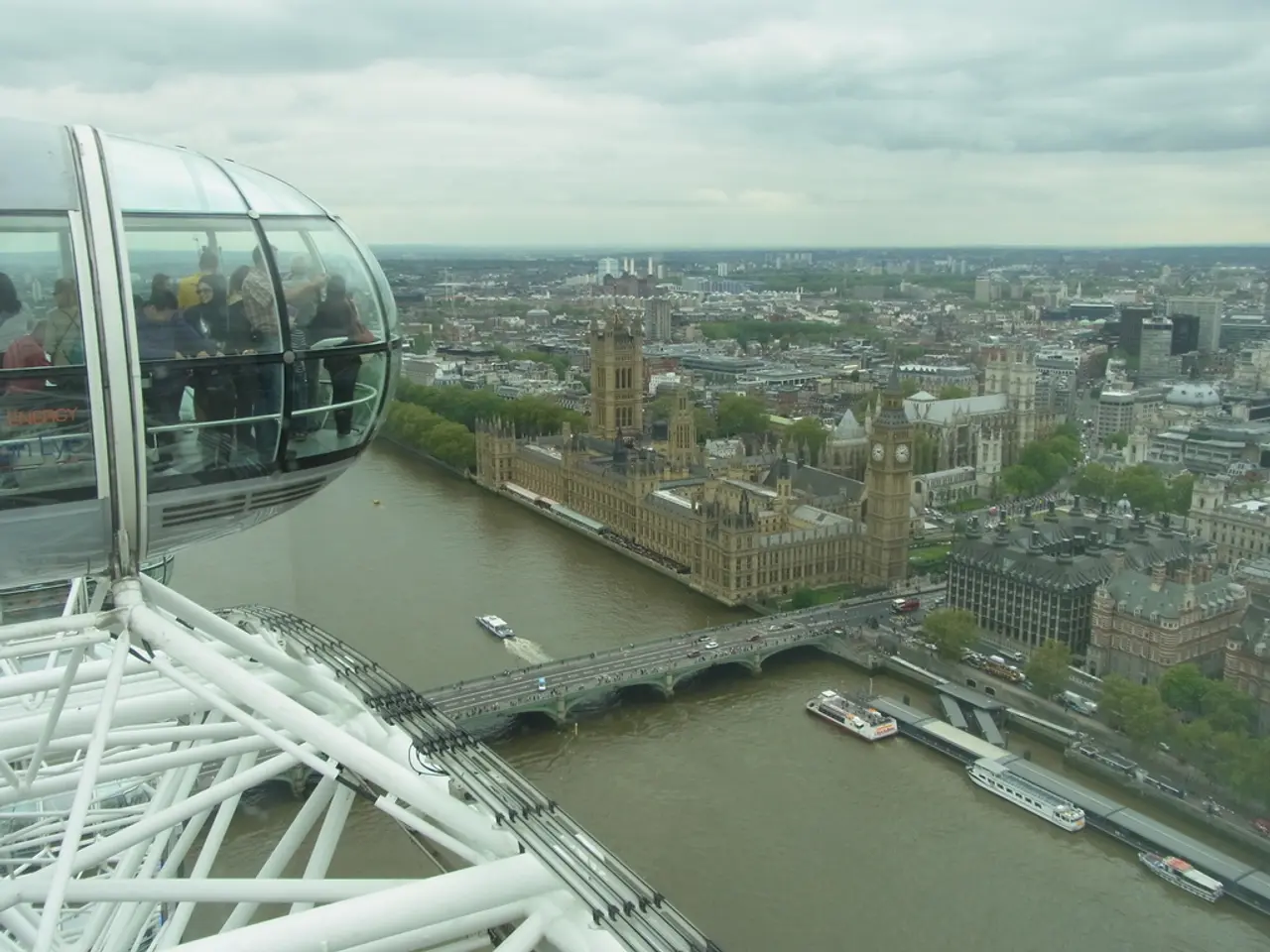Britain's Briefest-tenured Prime Minister Truss attributes economic 'conventional wisdom' for her fall from power
In a dramatic turn of events, former British Prime Minister Liz Truss's tenure came to an abrupt end after just over six weeks in office on October 20, 2022. Truss's premiership was marked by a series of bold economic policies and a subsequent backlash that led to financial instability and a rapid loss of political and party support.
Upon taking office in September 2022, Truss announced a series of tax cuts aimed at stimulating growth, including a plan that would reduce government revenues by £45 billion over five years. However, these policies, dubbed a "mini-budget," led to significant financial instability, with markets showing a sharp negative reaction and rising bond yields. Economists described the market response as reflecting a “moron risk premium” due to perceived economic mismanagement.
The economic chaos that ensued, including inflation hitting 11% and plunging market confidence, eroded Truss’s credibility very quickly. The financial turmoil made governing untenable and led to widespread political criticism, both inside and outside her party.
Truss's economic policies triggered a government crisis, with notable defections from Conservative members and public dissent. Key figures and MPs distanced themselves, increasing pressure on Truss to resign. This culminated in her resignation announcement on October 20, 2022.
Truss blamed the reaction to her policies on the left-leaning orthodoxy of the economic establishment and the "blob of vested interests" in the country's finance ministry, other nations, and in parts of the governing Conservative Party. She also pointed the finger at liability-driven investments (LDI), which pension funds use to cover their obligations, for the market turmoil following her mini-budget.
The opposition Labour Party criticized the Conservatives for crashing the economy, sinking the pound, putting pensions at risk, and increasing mortgages for working people. Labour's financial policy chief, Rachel Reeves, argued that only Labour can fix the economy and get it growing after 13 years of low growth, squeezed wages, and higher taxes under the Conservatives.
Following Truss's resignation, a leadership contest quickly ensued, leading to Rishi Sunak becoming prime minister again by late October 2022, as he had maintained some support within the party despite Truss’s initial leadership victory.
In essence, the combination of poorly received economic strategies that destabilized financial markets, rapid loss of political and party support, and the broader turbulent Conservative Party environment were the main factors leading to Liz Truss’s exceptionally brief term as UK Prime Minister.
[1] BBC News. (2022, October 20). Liz Truss resigns as UK prime minister. BBC News. https://www.bbc.com/news/uk-62759985
[2] The Guardian. (2022, October 20). Liz Truss resigns as prime minister after just 44 days in office. The Guardian. https://www.theguardian.com/politics/2022/oct/20/liz-truss-resigns-as-prime-minister-after-just-44-days-in-office
[3] Sky News. (2022, October 20). Liz Truss resigns as UK prime minister. Sky News. https://news.sky.com/story/liz-truss-resigns-as-uk-prime-minister-12704364
[4] The Economist. (2022, October 20). Liz Truss resigns as Britain's prime minister. The Economist. https://www.economist.com/britain/2022/10/20/liz-truss-resigns-as-britains-prime-minister
- The financial instability that resulted from Liz Truss's economic policies, particularly her mini-budget plan, generated intense criticism in the realm of business, policy-and-legislation, and general news, as experts questioned her ability to manage the UK's economy.
- The political turmoil that ultimately led to Liz Truss's resignation on October 20, 2022, had roots in the political arena, as her unpopular economic policies strained her party's support and even led to defections within the Conservative Party, highlighting the intersection of politics and finance.





